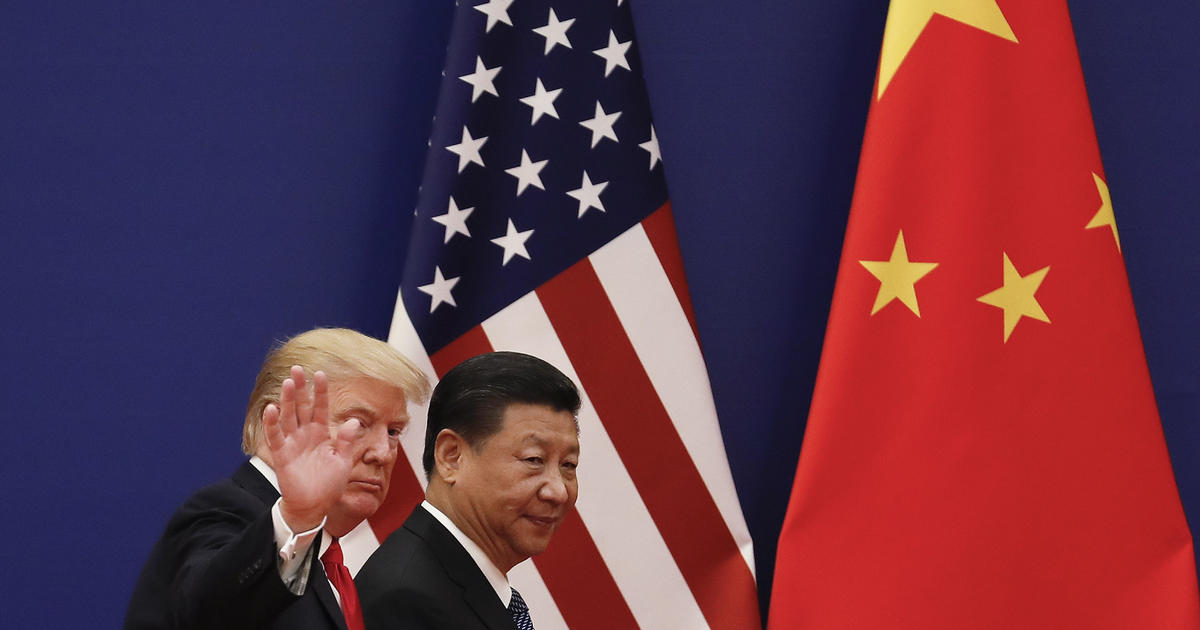
Financial markets were cautious amid pushback from China, the European Union and Japan on trade issues and remarks by President Donald Trump on Thursday expressing doubt that U.S. talks with Beijing would succeed.
China on Friday denied reports it would offer to slash its trade surplus with the U.S. by $200 billion, according to Reuters. Adding to the tensions, the EU told the World Trade Organization it is ready to deploy retaliatory measures against U.S. tariffs on steel and aluminum, which would include European tariffs on motorcycles and bourbon. And Japan is threatening to go to the WTO to protest the metal tariffs.
Mr. Trump imposed the tariffs in March, arguing that reliance on imported metals posed a threat to America’s national security. He exempted the European Union, Canada, and Mexico — but not Japan — until June 1.
Mr. Trump’s remarks yesterday came weeks after he declared that a trade war would be “easy to win” and amid reported clashes inside his own trade team as Chinese officials, led by the country’s top economic advisor Liu He, were in Washington to negotiate on trade.
They also came just as the U.S Trade Representative hearings on at least $50 billion in tariffs conclude as U.S. businesses detailed the costs they fear from an entrenched trade dispute with China. Those hearings are ahead of a May 21 recommendation expected from the Treasury Department on which tariffs to enact. Mr. Trump has also asked for a list of $100 billion more in possible tariffs.
Who loses?
The financial and energy industries are likely to be hit hardest by tariffs if they are enacted as laid out in March, according to Standard & Poor’s.
“While not directly impacted by President Trump’s tariffs, diversified banks and investment banking and brokerage companies are reexamining their business investment and lending decisions due to the levies’ potential negative repercussions on economic growth,” S&P analysts wrote in a recent report.
With banks, fund managers are concerned tariffs could lower U.S. economic growth, wages, employment and “in the long run, and make the U.S. tax burden less progressive,” the analysts wrote. They cited an estimate from the conservative Tax Foundation that show $37.5 billion in tariffs might cut U.S. employment levels by the equivalent of 79,000 fewer full-time jobs.
Meanwhile, Mr. Trump’s steel and aluminum tariffs enacted earlier this year have already dealt a “significant blow” to the U.S. energy sector, S&P said, citing industry participants’ heavy use of steel and aluminum for pipeline construction, wind and solar power installation, and other projects.
Signs suggest that tariffs and other countries’ countermeasures — including proposed duties and those already imposed — also are hitting other U.S. industries, some in areas of the country that voted for Mr. Trump in the 2016 election.
The U.S. has more to lose in a trade war than China, the S&P analysts said. “Companies have already started to examine the potential impact to their supply chains and are reevaluating the way they conduct business,” they wrote.
That impact is also hitting U.S. farmers. China has already canceled shipments of soy from U.S. farmers and is buying record amounts of soybeans from Russia, Bloomberg reported.
With U.S. trade negotiations reaching a critical juncture, here are other key issues in play:
NAFTA. The U.S., Mexico and Canada likely missed House Speaker Paul Ryan’s “soft” May 17 deadline for a final deal on the North American Free Trade Agreement, or NAFTA. On Friday, some members of Congress urged the Trump administration not to abandon negotiations even as United States Trade Representative Robert Lighthizer warned the three nations are “nowhere near close to a deal,” according to Bloomberg.
Missing Ryan’s deadline isn’t “fatal,” though an agreement anytime soon is unlikely, analysts from Oxford Economics said in a research note. Congress could still vote on a deal before they adjourn at the end of the May, but any further delay means a vote on a revised NAFTA might not come before 2019.
Metal tariffs. U.S. talks with the EU over the steel and aluminum tariffs “have turned into a standoff, with both sides now digging in their heels” as Europe prepares retaliatory measures, Oxford analysts wrote. EU leaders this week called on the Trump administration to stop threatening it with metal tariffs, adding it’s prepared to discuss new trade incentives.
“It’s Europe’s economic sovereignty, and what we are demanding is that we are exempted without conditions or time limits,” French President Emmanuel Macron said in Bulgaria May 17, where EU leaders gathered for a summit with Balkans countries.
CFIUS. Congress is drafting legislation to more stringently regulate foreign investment in U.S. companies, including from China. The Senate Banking Committee is scheduled to mark up its version of the bill, known as the Foreign Investment Risk Review Modernization Act, or FIRRMA, on May 22, seeking to hone the legislation before it moves to the full Senate for a vote.
The measures aim to strengthen the Committee on Foreign Investment in the United States, or CFIUS, a panel that reviews cross-border mergers for their impact on U.S. national security.
— The Associated Press contributed to this report

